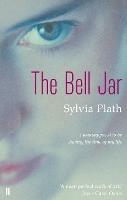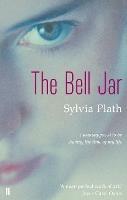This book has been in my "need to buy" list for a long time. I did not know if the writer had gone through any of the experiences that the character Esther endured, but I will be brutally honest. To begin with, this book explores the idea of detachment and feeling lost while growing up, even if life seems good on the surface. Esther, the young protagonist, is rebellious and refuses to submit to societal norms, especially marriage. She is portrayed as highly intelligent, but as the story unfolds, you see how she falls into a cycle of torment, dissatisfaction, and suffering. Plath, in this instance, writes in a fluent and accessible style, using simple language to describe both the surroundings and Esther's inner emotions. What captivated me most is how Plath subtly builds a plot twist, slowly immersing the character deeper into her own thoughts. One part that struck me the most is the fig tree passage. The idea of indecision, fear of judgment, and failure is conveyed powerfully yet gently in that short passage, giving readers deeper insight into Esther’s psyche. Lastly, the ending. Esther loses a friend—not someone she particularly liked, but a person she sympathized with. That loss influences both the protagonist and the reader. During her final days in the asylum, when the girl who had once helped her goes missing, I expected Esther to be devastated. However, she is barely affected and simply continues with her life. This made me reflect on how people often don't care about others as much as we might expect.
The Bell Jar
I was supposed to be having the time of my life. When Esther Greenwood wins an internship on a New York fashion magazine in 1953, she is elated, believing she will finally realise her dream to become a writer. But in between the cocktail parties and piles of manuscripts, Esther's life begins to slide out of control. She finds herself spiralling into serious depression as she grapples with difficult relationships and a society which refuses to take her aspirations seriously. The Bell Jar, Sylvia Plath's only novel, was originally published in 1963 under the pseudonym Victoria Lucas. The novel is partially based on Plath's own life and descent into mental illness, and has become a modern classic.
-
Autore:
-
Editore:
-
Anno:2005
-
Rilegatura:Paperback / softback
-
Pagine:240 p.
Recensioni pubblicate senza verifica sull'acquisto del prodotto.
-
Stephani 07 settembre 2024would I read it again? maybe
Le schede prodotto sono aggiornate in conformità al Regolamento UE 988/2023. Laddove ci fossero taluni dati non disponibili per ragioni indipendenti da Feltrinelli, vi informiamo che stiamo compiendo ogni ragionevole sforzo per inserirli. Vi invitiamo a controllare periodicamente il sito www.lafeltrinelli.it per eventuali novità e aggiornamenti.
Per le vendite di prodotti da terze parti, ciascun venditore si assume la piena e diretta responsabilità per la commercializzazione del prodotto e per la sua conformità al Regolamento UE 988/2023, nonché alle normative nazionali ed europee vigenti.
Per informazioni sulla sicurezza dei prodotti, contattare productsafety@feltrinelli.it




